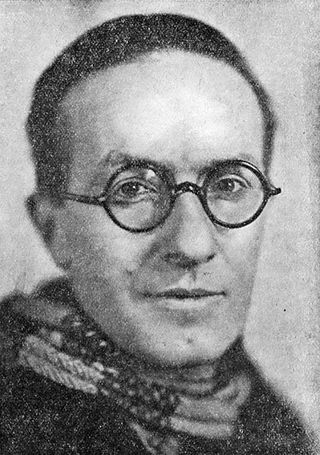
Hippolyte Jean Giraudoux was a French novelist, essayist, diplomat and playwright. He is considered among the most important French dramatists of the period between World War I and World War II.

Dear World is a musical with music and lyrics by Jerry Herman and book by Jerome Lawrence and Robert E. Lee. With its opening, Herman became the first composer-lyricist in history to have three productions running simultaneously on Broadway. It starred Angela Lansbury, who won the Tony Award for Leading Actress in a Musical in 1969 for her performance as the Countess Aurelia.
Robert Edwin Lee was an American playwright and lyricist. In the early years of World War II, Lee partnered with Jerome Lawrence to create Armed Forces Radio while serving together in the U.S. Army. Lawrence and Lee became the most prolific writing partnership in radio, with such long-running series as Favorite Story among others.
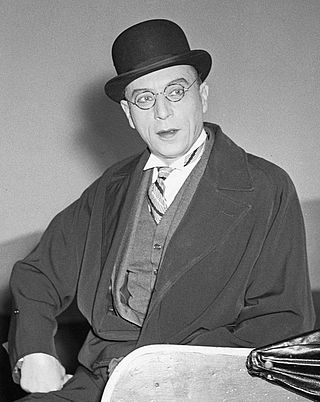
Jules Eugène Louis Jouvet was a French actor, theatre director and filmmaker.
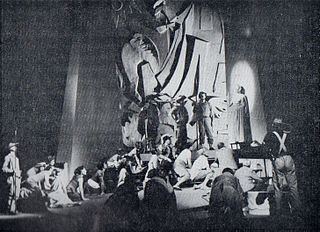
The Trojan War Will Not Take Place is a play written in 1935 by French dramatist Jean Giraudoux. In 1955 it was translated into English by Christopher Fry with the title Tiger at the Gates. The play has two acts and follows the convention of the classical unities.

The Madwoman of Chaillot is a 1969 American satirical film made by Commonwealth United Entertainment and distributed by Warner Bros.-Seven Arts. It was directed by Bryan Forbes and produced by Ely A. Landau with Anthony B. Unger as associate producer. The screenplay was by Edward Anhalt, based on The Madwoman of Chaillot, Maurice Valency's adaption of La Folle de Chaillot by Jean Giraudoux. The music score was by Michael J. Lewis and the cinematography by Burnett Guffey and Claude Renoir. It was shot at the Victorine Studios in Nice and on location in Paris. The film's sets were designed by the art director Ray Simm.
The Apollo of Bellac is a comedic one-act play written in 1942 by French dramatist Jean Giraudoux.
Minos Volonakis was a Greek theatre director and translator.

Amphitryon 38 is a play written in 1929 by the French dramatist Jean Giraudoux, the number in the title being Giraudoux's whimsical approximation of how many times the story had been told on stage previously.

Electra is a two-act play written in 1937 by French dramatist Jean Giraudoux. It was the first Giraudoux play to employ the staging of Louis Jouvet. Based on the classic myth of antiquity, Electra has a surprisingly tragic force, without losing the spirit and sparkling humor that made Jean Giraudoux one of the most important playwrights of the mid twentieth century.
The Enchanted is a 1950 English adaptation by Maurice Valency of the play Intermezzo written in 1933 by French dramatist Jean Giraudoux.

Judith is a play written in 1931 by French dramatist Jean Giraudoux.

Ondine is a play written in 1938 by French dramatist Jean Giraudoux, based on the 1811 novella Undine by the German Romantic Friedrich de la Motte Fouqué that tells the story of Hans and Ondine. Hans is a knight-errant who has been sent off on a quest by his betrothed. In the forest he meets and falls in love with Ondine, a water sprite who is attracted to the world of mortal man. The subsequent marriage of people from different worlds is, of course, folly.
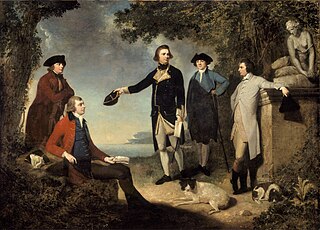
The Virtuous Island is a 1956 English adaptation by Maurice Valency of the play Supplément au voyage de Cook written in 1935 by French dramatist Jean Giraudoux.
Tessa is a play written in 1934 by French dramatist Jean Giraudoux. It is a translation and adaptation of a 1926 stage version by Margaret Kennedy and Basil Dean of the former's 1924 novel The Constant Nymph.
Lucienne Bogaert was a French actress. She started her career in theatre, but later also worked in film. After she divorced her husband Robert Bogaert, she retained his name for professional purposes.
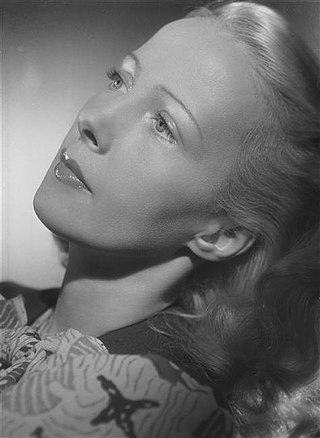
Madeleine Ozeray, was a Belgian stage and film actress. She appeared in many films between 1932 and 1980. She is the godmother of theater actor, dancer and singer Frédéric Norbert.
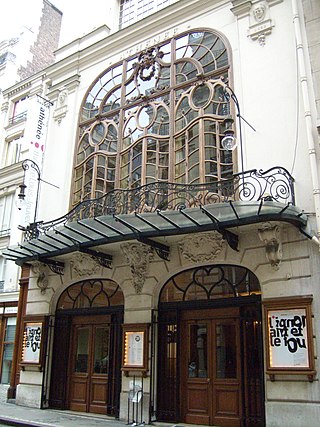
The Théâtre de l'Athénée is a theatre at 7 rue Boudreau, in the 9th arrondissement of Paris. Renovated in 1996 and classified a historical monument, the Athénée inherits an artistic tradition marked by the figure of Louis Jouvet who directed the theatre from 1934 to 1951. During the period when he was director, it became known as the Athenée Théâtre Louis-Jouvet.
Maurice Valency was a playwright, author, critic, and popular professor of Comparative Literature at Columbia University, best known for his award-winning adaptations of plays by Jean Giraudoux and Friedrich Dürrenmatt. He wrote several original plays, but is best known for his adaptations of the plays of others. Valency's version of The Madwoman of Chaillot would become the basis of the Jerry Herman musical Dear World on Broadway.

Morris Brenner was an American actor. He was best known for playing Pvt. Irving Fleischman in The Phil Silvers Show.













